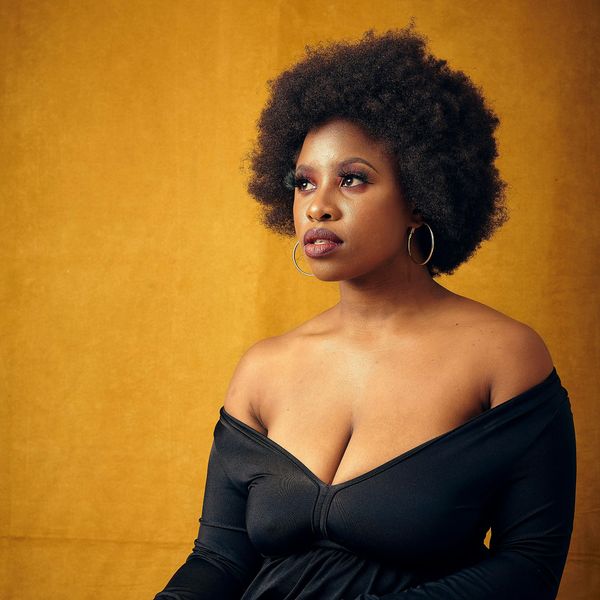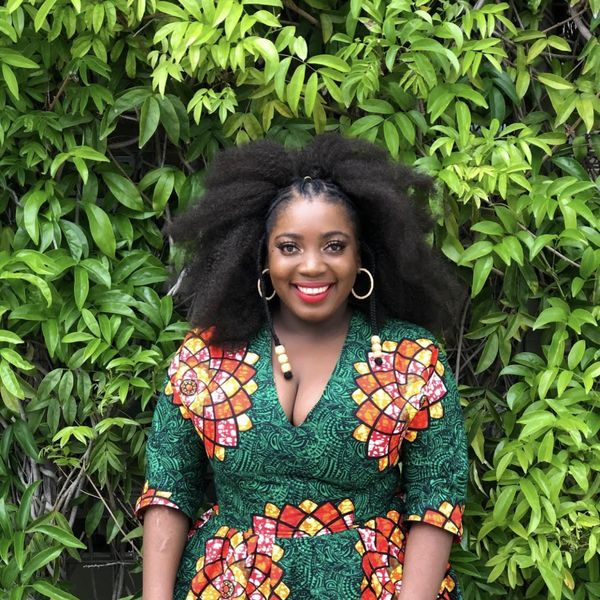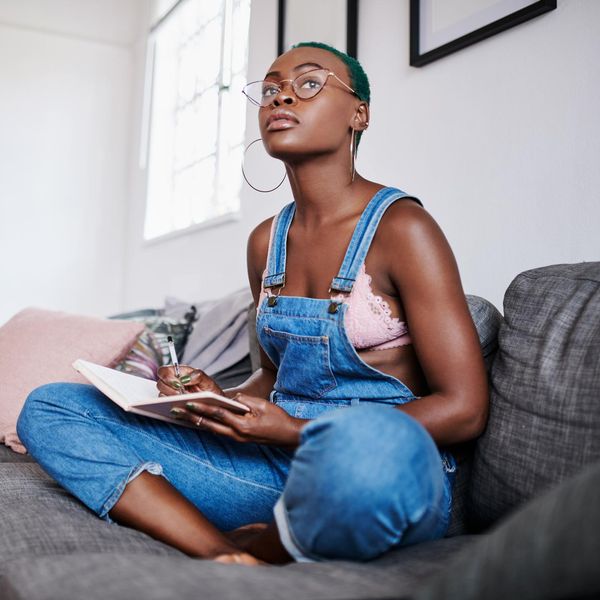
I remember Monday mornings at my old job when everyone (although they hated that it had ended) was eager to tell the whole office about their weekend. These were conversations that I deeply resented. One, because I had little interest in hearing about my coworkers' personal lives, and two, because they were instant reminders of how burnt out and misunderstood being in that place made me feel.
Every week it was the same thing: They'd ask me what I did during the weekend and could never believe their ears when they'd hear me say that I didn't do anything. Then, they would guilt-trip me into believing that I was wasting the best years of my life by staying hidden inside my cave and refusing to socialize.
To this day, I'm still wondering why it was so hard for them to conceive that the time we have off from our responsibilities isn't necessarily meant to be spent doing any other activities and that it's okay to choose to rest. That joy and fulfillment can also be found in unplugging from the world and reconnecting with ourselves.
In hindsight, I must admit that I was choosing to escape life every chance I had was more reflective of how miserable I was than the happiness I felt from retreating.
Indeed, a hard truth that I failed to acknowledge before I had the opportunity to discuss the art of embracing doing nothing with four amazing Black women and what it truly means to them is that my me-time had turned into toxic self-isolation. All because it was easier to run away from a life I didn't enjoy rather than making hard decisions that would change the course of my future for the better. The major takeaway that I got from speaking with the women below is that stillness shouldn't (just) be an exit door—and just like everything else in life, it has extremes that finding balance will prevent us from falling in.
Dr. Thema Bryant
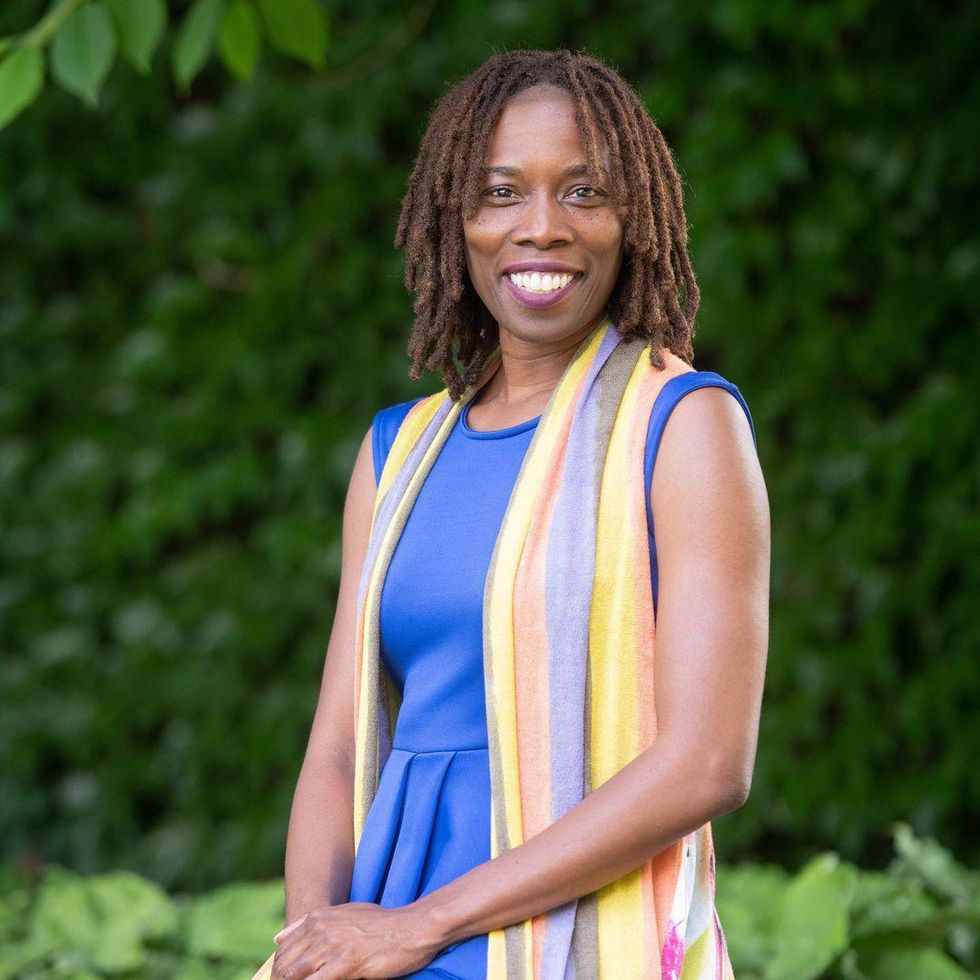
Courtesy of Dr. Thema Bryant
Licensed Psychologist & Professor at Pepperdine University
"Indulging in the art of doing nothing is such a radical decision, particularly for women of color because our worth and value are often associated with our busyness. For the longest time, women of color have been put under this pressure to work hard for everyone else. There's often little attention given to our care, [and] wellness, let alone our needs. So, for us to be revolutionary enough to say that those [things] matter and to choose to do nothing at all during moments of our days and life is a declaration that says, "I am worthy and I am enough. I don't have anything to prove."
"I was introduced to stillness by my mother. She's a minister who teaches, particularly women of African descent, about prayer. A lot of people associate prayer with talking but it turns out that a major point of prayer is in silence and stillness. It's a sacred rhythm between activity, action, accomplishment, and taking the time to be still, to reconnect, to be grounded, as well as to be filled. All of which [are] to ensure that when we pour, we are not operating out of emptiness.
"Growing up, I followed my mother's path and practiced stillness through prayer and meditation. Later, I also added physical movement that allows the mind to be still such as dancing and walking. I believe that there's a need to push back on the idea that the art of doing nothing can only be practiced by sitting still with our eyes closed and our legs crossed.
"To me, the art of doing nothing means slowing down our pace, becoming more aware, operating with gentleness and compassion to ourselves, etc. It's more a way of living than it is an approach to living. It's not something that we're required to schedule or practice during a specific time frame only. It's something that we can decide to do at any given moment."
"However, it is likely that sometimes, the urge to escape our own company by burying ourselves in work or finding something entertaining to do manifests itself. When this happens, it is important to truly understand that being in our own presence is not a punishment. Considering it as such or seeing it as a chore is the best way to miss the gift of it. It becomes another task to add to our to-do lists instead of being a pleasure that we're giving ourselves to stay still and do nothing but to reconnect.
"As a psychologist, I work a lot with trauma survivors and I noticed that people who have gone through very difficult experiences sometimes cope by staying busy. It's their way to prevent their thoughts from taking over their minds. But one thing I know for sure is that busy and distracted don't serve as a definition for healed. And unhealed traumas must be addressed at some point. One of the ways to do that is to practice the art of embracing doing nothing."
Visit Dr. Thema's website drthema.com.
Amber Janae
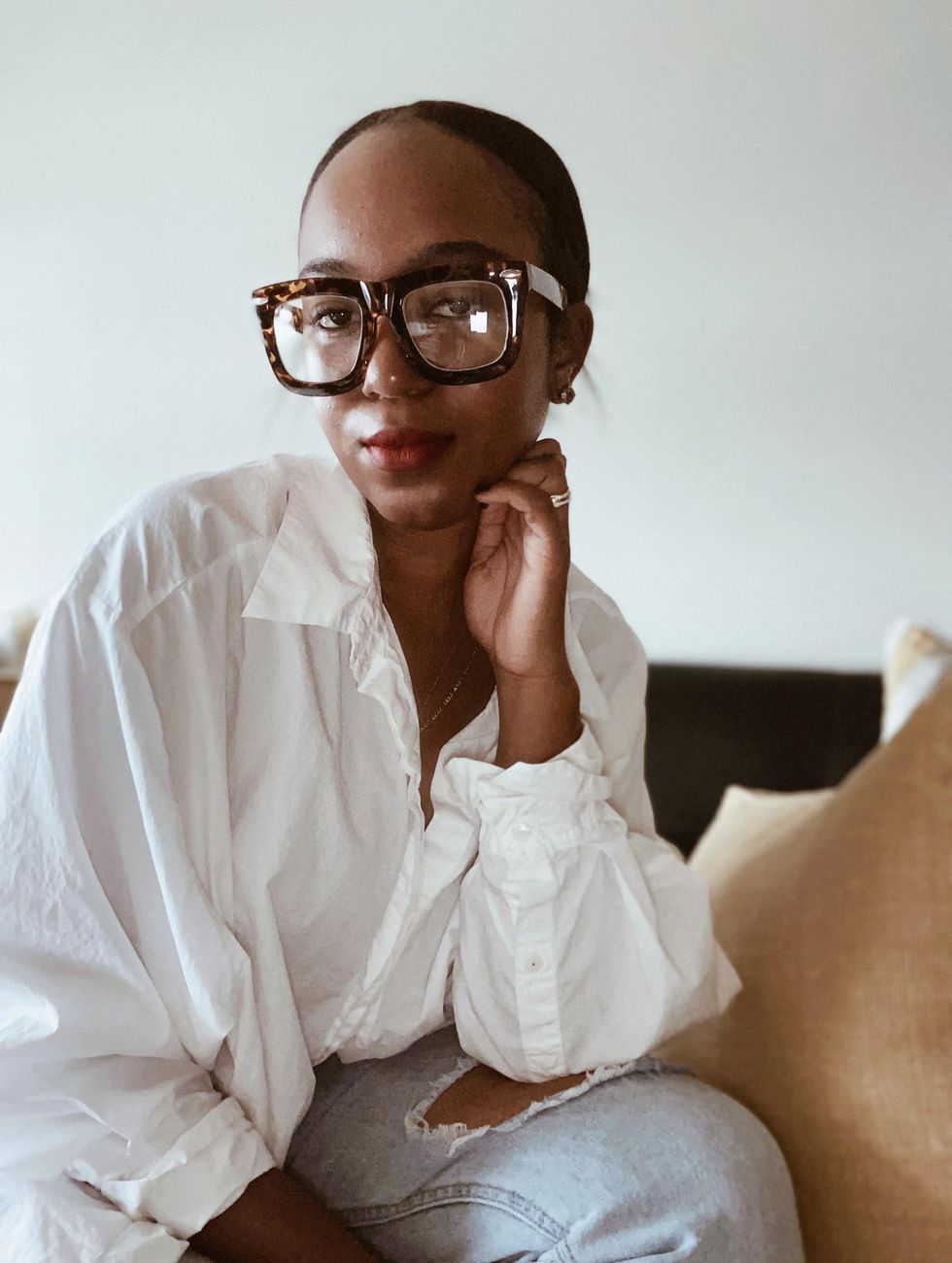
Courtesy of Amber Janae
Professional Expert in Content Strategy & Digital Marketing
"For me, the art of doing nothing is simply being as I am and not feeling any guilt, pressure, or a desire to be anyone or anything other than who I am in the present moment. I believe that women in general should learn to embrace stillness because it's our way to just be. It is the space where we become one with ourselves. It is important to understand that stillness is something that we choose; it does not choose us.
"Many spend a lot of time ignoring their intuition or that inner nudge guiding them in the direction to pause and just be for a while. When you're ready to discover and connect with the parts of yourself that have remained a mystery, you will make time to be still.
"To embrace stillness, you also have to let go of the misconception that stillness simply means not moving or staying in one place. You can force yourself not to physically move for days, weeks, and months but it doesn't guarantee progress is being made. It's not enough to be still, you have to disconnect."
"For me, the art of doing nothing is less of a practice and more of a natural state of being. The benefits that I've gained from such have been loving and trusting myself more than ever before—and not allowing anything to change that. Self-care isn't a one-off thing I do when I am having a bad day or week. I am forever intentionally creating a safe space for myself internally and externally; therefore, I am always practicing a form of self-care. It is less of a single method or action; it is a way of being... It is an organic way of life in my world.
"Personally, I do not believe that stillness is scary. There are very few things that I fear and stillness isn't one. Fearing growth, evolving, or becoming a better me which are the things that we embody when we choose to remain still isn't a natural act to me. In my opinion, if you're actively choosing entrapment, then it more than likely means that you're afraid to face yourself. You live in fear of what awaits you on the other side of self-discovery. You're running from your truth and not ready to embrace, accept, or face the parts of you that need healing."
Follow Amber on Instagram @ajscribes.
Tempest Linh

Courtesy of Tempest Linh
Freelance Writer, Martial Artist & Tarot Reader
"I learned the true concept of stillness through my journey as a martial artist, which started in 2018. I practice American Kenpo Karate and Tai Chi. My head instructor, a badass Southeast Asian woman, taught me the principles of meditation (Anapanasati) and stillness that I currently practice. Typically, when people think of meditation, they imagine themselves seated in a lotus position and devoid of all thoughts. But that's not what true stillness is to me—it's honestly not realistic, especially in today's climate.
"Stillness is when your mind is racing, but you're not consumed by those thoughts. It's when something can pop up in your mind and you don't ruminate over it. When you can observe your thoughts and emotions without judgment, and just let yourself be."
"Martial arts is my main outlet for practicing stillness. The practice happens when I'm faced with my 'not enough story', as my head instructor calls it. The 'not enough story' is an overwhelming feeling of inadequacy. This happens when I feel like I'm not learning a form or set of techniques fast enough, or when I do learn it I feel like I'm doing it all wrong. It's that nagging inner critic that we all have. The challenge is to move through it, even when I feel like I'm just not good enough, and this mindset trickles into daily life outside of the dojo.
"With that said, even in knowing and experiencing the benefits of stillness, I still struggle to resist escaping my own company. Sometimes, the thought of being alone with myself, and my thoughts is kind of terrible. Even showing up to karate can truly be a struggle—and 2020 made it especially hard. We normally live in a world that's made of distractions, so being forced to pause and sit with ourselves truly allows our 'not enough' stories to come out and be heard. Then, our insecurities become glaringly obvious. I've experienced many existential crises when faced with mine. Being pummeled by your own thoughts and anxieties can be a bit too much; mine, for example, are like monsters and a lot of the time, I just don't want to face them.
"Eventually, it gets to the point where I can't avoid it anymore and I have to sit with myself and get realigned and refocused. But that's when I remember to breathe, find one truth in the madness of my thoughts—because our brains lie to us a lot—and stick to it. I would like to grow to a point where taking the necessary time for myself becomes a daily practice, not just something that I do when I'm fed up."
Follow Tempest on Twitter @sunstorm_.
Radiah Rhodes
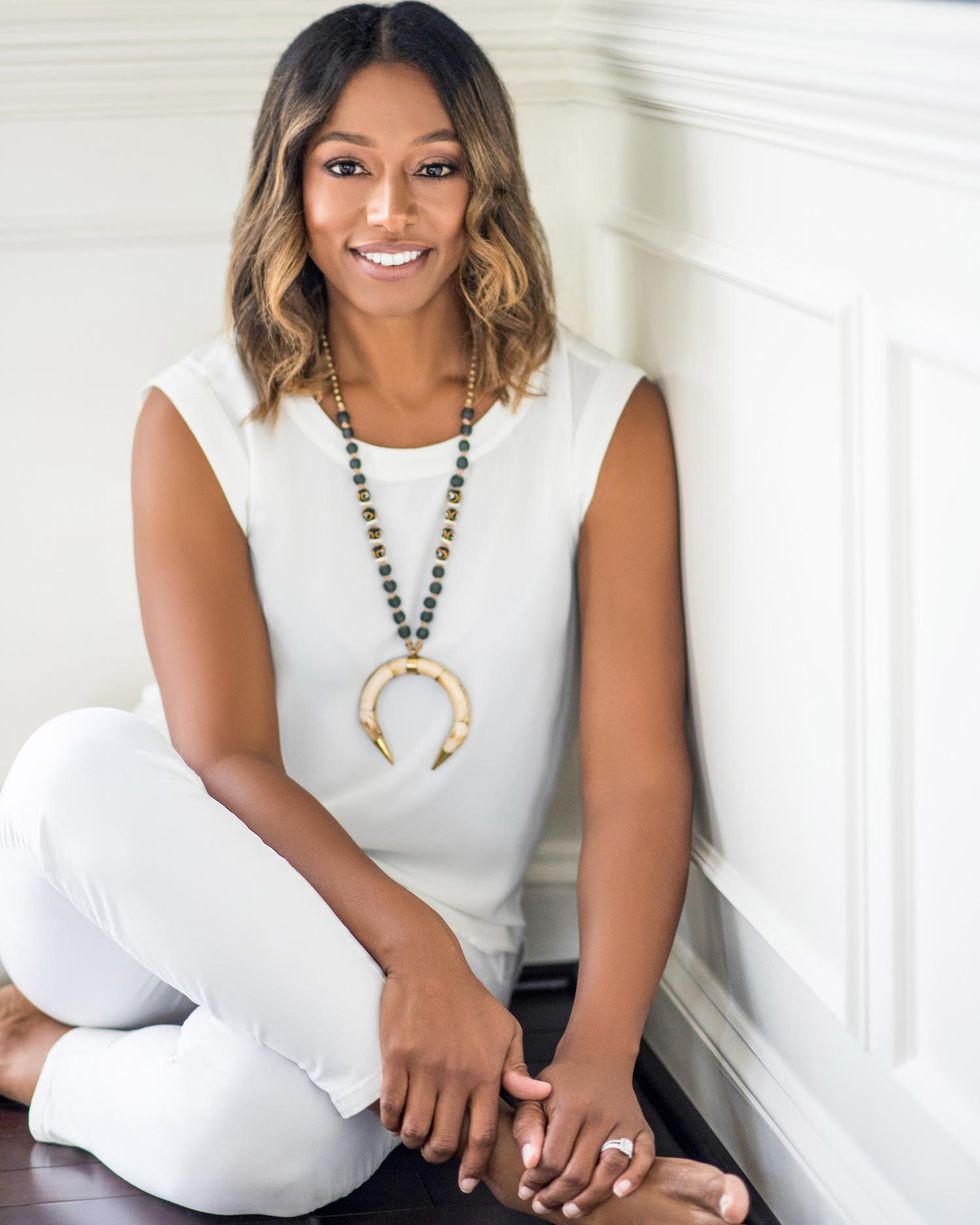
Courtesy of Radiah Rhodes
Founder at Evók and Smart Pressed Juice & Well-Being Innovator
"The word I'd use to define stillness is 'light'. To me, stillness is where your truth and all the answers that you're looking for reside. It's also an art for which you don't find the time to practice, you create it. Every season, I follow The Inner Game Plan™, a step-by-step process to practicing stillness that I came up with 10 years ago with the intent to save myself and which I'm now able to share with the world. I schedule two to three hours of uninterrupted time and space so I can go through each exercise and stay aligned. I've committed to this process as a way to live my life that makes my well-being the priority and the source for everything else. It allows me to build assurance in my spirit and such peace in my soul from knowing that I stopped, prioritized, inquired, listened, and honored what is within me.
"If it wasn't for stillness, I wouldn't have been able to discover my truth, flow, nor the power of who I am. Because I know me and what works for me, I, therefore, know how to wield it in the world for the good of what matters most to me with very little effort. There's authentic power in stillness."
"With that said, I didn't get to the point of fully embodying stillness without experiencing fear. Stillness is scary. First, it feels like if we take our foot off of the gas pedal that's gotten us this far, everything is going to drop when we stop. We deeply believe that our 'doing' is the only way to get things done. Then, there's the fear of the unknown—or the unacknowledged because we've been suppressing so much. It's catastrophizing whatever you might uncover. I remember always feeling like I couldn't allow my thoughts or feelings out because then I'd have to do something about them and it was either going to be drastic or cause the loss of something significant if I acknowledged the truth.
"'If I tell the truth about my job, I'm going to have to quit,' I'd think. Or 'If I tell the truth about my marriage, I'm going to have to get a divorce.' In my head, there was so much riding on me: family, finances, community, the culture, the country...all of it. It's easy to think that if we stop, everything will fall apart. That was a catastrophe to be avoided at all costs in my world. However, I came to understand that the pain of suppressing and avoiding is far worse than any discomfort or challenge that stillness and owning your truth will put you through."
Follow Radiah on Instagram @radiahrhodes.
Featured image courtesy of Amber Janae
- Mashonda Tifrere On The Importance Of Self-Inflicted Solitary ... ›
- SZA Cosmopolitan Cover Best Quotes - xoNecole: Women's Interest ... ›
- Lessons I Learned In The Stillness Of Recovery - xoNecole ... ›
- Worry Changes Nothing. Peace Alters Everything. - xoNecole ... ›
- What My 45-Year-Old Self Would Tell My 25-Year-Old Self - xoNecole: Women's Interest, Love, Wellness, Beauty ›
Exclusive: Viral It Girl Kayla Nicole Is Reclaiming The Mic—And The Narrative
It’s nice to have a podcast when you’re constantly trending online. One week after setting timelines ablaze on Halloween, Kayla Nicole released an episode of her Dear Media pop culture podcast, The Pre-Game, where she took listeners behind the scenes of her viral costume.
The 34-year-old had been torn between dressing up as Beyoncé or Toni Braxton, she says in the episode. She couldn’t decide which version of Bey she’d be, though. Two days before the holiday, she locked in her choice, filming a short recreation of Braxton’s “He Wasn’t Man Enough for Me” music video that has since garnered nearly 6.5M views on TikTok.
Kayla Nicole says she wore a dress that was once worn by Braxton herself for the Halloween costume. “It’s not a secret Toni is more on the petite side. I’m obsessed with all 5’2” of her,” she tells xoNecole via email. “But I’m 5’10'' and not missing any meals, honey, so to my surprise, when I got the dress and it actually fit, I knew it was destiny.”
The episode was the perfect way for the multihyphenate to take control of her own narrative. By addressing the viral moment on her own platform, she was able to stir the conversation and keep the focus on her adoration for Braxton, an artist she says she grew up listening to and who still makes her most-played playlist every year. Elsewhere, she likely would’ve received questions about whether or not the costume was a subliminal aimed at her ex-boyfriend and his pop star fiancée. “I think that people will try to project their own narratives, right?” she said, hinting at this in the episode. “But, for me personally – I think it’s very important to say this in this moment – I’m not in the business of tearing other women down. I’m in the business of celebrating them.”
Kayla Nicole is among xoNecole’s It Girl 100 Class of 2025, powered by SheaMoisture, recognized in the Viral Voices category for her work in media and the trends she sets on our timelines, all while prioritizing her own mental and physical health. As she puts it: “Yes, I’m curating conversations on my podcast The Pre-Game, and cultivating community with my wellness brand Tribe Therepē.”
Despite being the frequent topic of conversation online, Kayla Nicole says she’s learning to take advantage of her growing social media platform without becoming consumed by it. “I refuse to let the internet consume me. It’s supposed to be a resource and tool for connection, so if it becomes anything beyond that I will log out,” she says.
On The Pre-Game, which launched earlier this year, she has positioned herself as listeners “homegirl.” “There’s definitely a delicate dance between being genuine and oversharing, and I’ve had to learn that the hard way. Now I share from a place of reflection, not reaction,” she says. “If it can help someone feel seen or less alone, I’ll talk about it within reason. But I’ve certainly learned to protect parts of my life that I cherish most. I share what serves connection but doesn’t cost me peace.
"I refuse to let the internet consume me. It’s supposed to be a resource and tool for connection, so if it becomes anything beyond that I will log out."

Credit: Malcolm Roberson
Throughout each episode, she sips a cocktail and addresses trending topics (even when they involve herself). It’s a platform the Pepperdine University alumnus has been preparing to have since she graduated with a degree in broadcast journalism, with a concentration in political science.
“I just knew I was going to end up on a local news network at the head anchor table, breaking high speed chases, and tossing it to the weather girl,” she says. Instead, she ended up working as an assistant at TMZ before covering sports as a freelance reporter. (She’s said she didn’t work for ESPN, despite previous reports saying otherwise.) The Pre-Game combines her love for pop culture and sports in a way that once felt inaccessible to her in traditional media.
She’s not just a podcaster, though. When she’s not behind the mic, taking acting classes or making her New York Fashion Week debut, Kayla Nicole is also busy elevating her wellness brand Tribe Therepē, where she shares her workouts and the workout equipment that helps her look chic while staying fit. She says the brand will add apparel to its line up in early 2026.
“Tribe Therepē has evolved into exactly what I have always envisioned. A community of women who care about being fit not just for the aesthetic, but for their mental and emotional well-being too. It’s grounded. It’s feminine. It’s strong,” she says. “And honestly, it's a reflection of where I am in my life right now. I feel so damn good - mentally, emotionally, and physically. And I am grateful to be in a space where I can pour that love and light back into the community that continues to pour into me.”
Tap into the full It Girl 100 Class of 2025 and meet all the women changing game this year and beyond. See the full list here.
Featured image by Malcolm Roberson
What Is A 'Vulnerable Narcissist'? How It Creeps Up In Female Friendships.
Narcissist. Boy, if there is a word that has been used — and, in many ways, misused — to death, especially on social media, that would be the one. I say that because the folks who think that just because a relationship didn’t go as planned, or they no longer gel with someone, that it must be because that person is a narcissist? Whew, chile.
So, let me just say before we get into today’s topic that one, I won’t really be referring to narcissistic personality disorder; people who have that are diagnosed by professionals — not randoms on social media who like to Google a lot. Nah, this is more about how some individuals display several traits of being narcissistic — and for the sake of this article, the traits of being a vulnerable narcissist, specifically.
I was inspired to write this because, recently, while reading about eight types of narcissists and what their traits consist of, I revisited what a vulnerable narcissist is all about. Then, as I connected some dots via another piece that I read about how it shows up in female friendships — well, because this is a platform for Black women, I definitely wanted to put y’all on notice. Because when it comes to toxic friendships (which really is a bit of an oxymoron, isn’t it?), there is probably nothing worse than having a narcissist friend — someone who displays traits like being highly self-centered, pretty apathetic, and constantly gaslighting those around them.
Okay, so what’s the difference between a “regular” narcissist and a vulnerable one? Yeah, let’s get into that now because I’ve got a feeling that some light bulbs are going to go on for a few of you…as it relates to at least one of your current…“friendships.”
So Basically, a Vulnerable Narcissist Is the Same Thing As a Covert One
 Giphy
GiphyIf you check out the article, “Science Says That Happy Couples Do The Following 7 Things” on this platform, one thing that you will notice that I said is, since I’ve been a marriage life coach, I’ve not really been big on using the word “vulnerable” when it comes to serious relationships. Charge it to being a writer who takes words pretty literally (dictionary-defined ones, not what social media makes up from year to year) yet I’ve never understood why we should encourage people to be vulnerable with someone who they deeply trust.
I say that because I know that vulnerable means things like “capable of or susceptible to being attacked, damaged, or hurt” and “open to moral attack, criticism, temptation, etc.” And although I get that no one is perfect, if you feel like dealing with those closest to you requires taking this level of an emotional risk, on a fairly consistent basis? In my opinion, that is a dark orange flag, if not a flat-out red one.
I’ve said before that my preferred word is “dependent” because it means “relying on someone or something else for aid, support, etc.” — and healthy relationships? They absolutely should be INTERDEPENDENT. Yeah, whether it’s romantic, familial or a friendship — why are you out here feeling like sharing yourself makes you open to attack and harm when you should be involved with individuals who can be relied on for support? See the difference? And that is why a vulnerable narcissist makes sense to me — since a narcissist is unsafe, by the very definitions of vulnerable, a vulnerable one would be too. Even more so, in fact.
Here's the clincher, though. Even if you’ve never heard of a vulnerable narcissist before, I’m willing to bet that some of you have heard of a covert narcissist, which is basically the same thing. The fascinating thing about a covert narcissist is they are more subtle than some of the other types — which is exactly how they are able to trip folks up. Because although they need lots of attention and they tend to act really self-important (like all narcissists do), a covert narcissist moves in some pretty sneaky ways.
For instance, they might go really heavy on what seems like compliments (more on that in a sec) in order to make you think that they admire you when, really, they just want to get your guard down in order to get whatever they want out of you. Another example of a covert narcissist is they might act like they are proud of something you accomplished; however, they are actually sticking close by to get some of your contacts or to work themselves into the successful world that you created, so that they can actually compete with you. One more example of a covert narcissist is if they don’t get their way, they may ghost you for days, weeks or months at a time and then be all passive aggressive about it whenever they resurface.
And why are they like this? Because vulnerable/covert narcissists get off on gaslighting — they want you to feel like you are crazy for thinking what is, 8.5/10, spot-on about them. That way, you can be the villain and they can play the victim — even though it’s probably the exact opposite that is actually going on. They do this because, ultimately, to boost their ego. For a narcissist, pretty much of any kind, game-playing is what fuels them and makes them bigger in their minds than they actually are (or even deserve to be).
10 Dead-Ringer Signs of a Vulnerable Narcissist
 Giphy
GiphyOkay, so even with all of what I just said, what if you’re like, “Shellie, I think I get it, but I need a few more examples of what you’re saying”? I hear you and I’ve got you. Some other ways that vulnerable narcissists like to show up and out?
- They are hypercritical and condescending
- They act like they are allergic to accountability
- Their expectations are unreasonable (and hypocritical)
- They are walking contradictions
- They want to be the center of attention (and while monopolize things
- They are masters at giving others the silent treatment
- Their expectations are unrealistic and their demands are ridiculous
- They deflect instead of apologize
- They flatter (use fluffy and insincere words) yet don’t affirm or compliment (yes, there is a difference)
- They lack empathy or humility
And why — or even how — would you be a friend with someone like this? Well, the other thing that you have to keep in mind about narcissism is they are excellent at using charm to their advantage. Charming people tend to come off as being charismatic and witty. Charming people seem to be really interested in you (at least initially). Charming people have a way of making you feel very comfortable around them. At first, charming people seem genuine, attentive and respectful. And they definitely make a good impression — sometimes one that is so solid that you keep going back to that memory during the “bad times” with them.
Hmph. The thing that you have to always keep in mind when it comes to charm, though, is what Scripture says about it: “Charm is deceitful…” (Pr. 31:30) — and that is just what a narcissist is: deceptive.
And when it comes to a vulnerable narcissist and her friendships with other women? The deceptive runs deep.
How a Vulnerable Narcissist Shows Up Especially in Female Friendships
 Giphy
GiphyAlways remember that a vulnerable narcissist moves in subtle and sneaky ways. Hmph, that alone should make you want to ponder if you have some female friends who would fit the bill of being a vulnerable narcissist because we do have a way of being clever and ingenious…which are two of the things that come with being a subtle type of individual. And the way that subtle narcissists use their clever and ingenious ways to their advantage? I’ll give you an example.
A former friend of mine who was — and from what I hear, still is — an absolute vulnerable narcissist really wanted me to be her fan rather than her friend. One time, she even invited me to a bachelorette party and said, “You’re the only one here who isn’t a bridesmaid. You should feel honored.” Nah, what you really said is that you don’t truly value what I bring into your life enough to be a bridesmaid but you know I am good for bringing one hell of a gift and cheering you on regardless.
And that’s how a lot of our friendship was — doing way more giving than I was receiving, doing way more listening than leaning and when I would call her out on some of these things, she would either freeze me out or play the victim and act like somehow it was my fault that she wasn’t being a better friend.
Yeah, that’s what you’ve gotta watch about vulnerable narcissists — it is going to be oh so very rare that they will take full accountability for where they have dropped the ball. To them, somehow, it — whatever “it” is — is either going to be your fault or someone else’s. And that’s why, in their eyes, if you were a “real friend” to them, you would coddle them through not meeting your needs instead of expecting them to actually change their ways so that you both could benefit from the relationship.
And why don’t your needs matter? Because, to a vulnerable narcissist, they believe that they are worthy of extra special treatment at all times — think of them like being a bridezilla 24 hours a day. LOL.
And although some of what I said can be nuanced, for the most part, that really is how a vulnerable narcissist tends to make themselves seen and heard in female friendships: treat them like queens and expect to be mere subjects in their court or…why are you around at all, chile?
5 Hacks for Handling a Vulnerable Narcissist
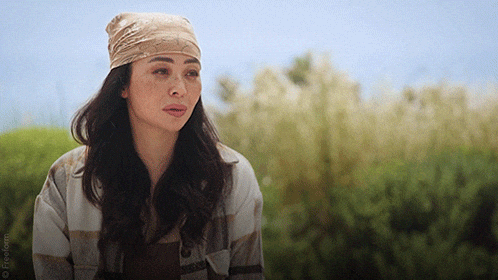 Giphy
GiphyFeeling triggered? Or better yet, are you feeling like you finally can “scratch the itch” of what you’ve been looking for to describe a certain person (or certain people) in your life goes? If that is the case and although you see some flags, there tends to be at least a little bit of good enough in your dynamic with “your” vulnerable narcissist to not totally break things off (yet), how do you keep a vulnerable narcissist from causing (anymore) harm?
1. Set firm boundaries. The former friend who I just spoke of? It took years to fully and finally unravel out of all of that (pretty much because she took her elitism to “no turning back” levels a few years ago). A part of the reason why is because she’s not the devil; she really isn’t — she’s just a narcissist. So, what I did to make things more bearable for myself for a while was set some emotional boundaries.
Sometimes I had to tell her “no” and provide no explanation behind it (narcissists think that they are owed every damn thing, chile). I refused to be at her beck and call all of the time. When I felt like she was stressing me out, I would take a bit of time off from phone calls or hanging out. Listen, you will never survive a narcissist, of any kind, unless you have some firm and consistent ARTICULATED boundaries set. If you don’t heed any other point, please heed this one.
2. Have consequences in place for when they are broken. There is no point in setting a boundary if there aren’t going to be consequences for when they are broken. So, for instance, if you tell a vulnerable narcissist that you don’t appreciate them not taking accountability for telling your business to a mutual friend (because they are also extremely entitled individuals), you should probably keep your mouth shut around them for a while. Narcissists care more about their present interests than your holistic comfort which is why they tend to do stuff like that (sometimes).
3. Look at patterns over promises. Narcissists are a lot like energy vampires — and something that both of those need is a source of supply to leech off of whether it’s attention, emotional investing, resources…whatever will benefit them and what they are wanting at the time. And that is why they have no problem telling you that they will do something for you…even if they don’t end up following through. They do this because they want you to put enough confidence in them to be willing to go out of your way on their behalf — at least until they get what they need in the moment. Be careful of that. In genuine friendships, you should be able to rely on others just as much as they should be able to rely on you.
4. Choose to not see them as your “safe place.” Remember, narcissists are charming. They can also be witty, fun and totally entertaining to be around. A word that I wouldn’t use for them, though, is “safe.” The former friend who I mentioned? Although she was good at keeping information confidential (which is a safe trait), she couldn’t be relied on when I was hurting because, somehow, she was going to find a way to turn the focus on her (that is unsafe). I mean, rarely could I tell her something and she wasn’t going to turn it into a story about herself. Yeah, narcissists are always on some sort of makeshift stage, chile. And that can be exhausting.
5. Make sure you know what your “breaking point” is. I tell clients often: Be okay with being someone’s consequence sometimes because there may be a chance that they won’t learn any other way. Do I miss that former friend of mine? Eh, by the time that I was done, I was DONE done. However, we had a lot of years between us and so there are memories that get to me on random occasions. And although I don’t hate her and can see her and genuinely care about how she’s doing, we have nowhere to go in the future. She’s always going to want me to do most of the work — and I am no longer interested in doing so. Breaking points are good. They let us know when a chapter in a relationship has…completed itself.
____
An author by the name of Nassim Nicholas Taleb once said, “Love without sacrifice is theft” (that kind of makes me think of the late author Eric Jerome Dickey’s quote, “Sex without love is violence”). At the end of the day, that saying is a good way to “gut check” your relationship with a vulnerable narcissist. Ask yourself if you are basically the only one doing any sacrificing. And if that is indeed the case, is it worth it?
Remember, a vulnerable narcissist thinks that they deserve to be treated better than everyone else — including you. If you want to keep that type of person as a friend, just know what you are getting yourself into. Because since they are probably never going to change, you will be the one who has to.
One way or another, sis. One way or a freakin’ other.
Let’s make things inbox official! Sign up for the xoNecole newsletter for love, wellness, career, and exclusive content delivered straight to your inbox.
Featured image by Dragon Images/Getty Images



